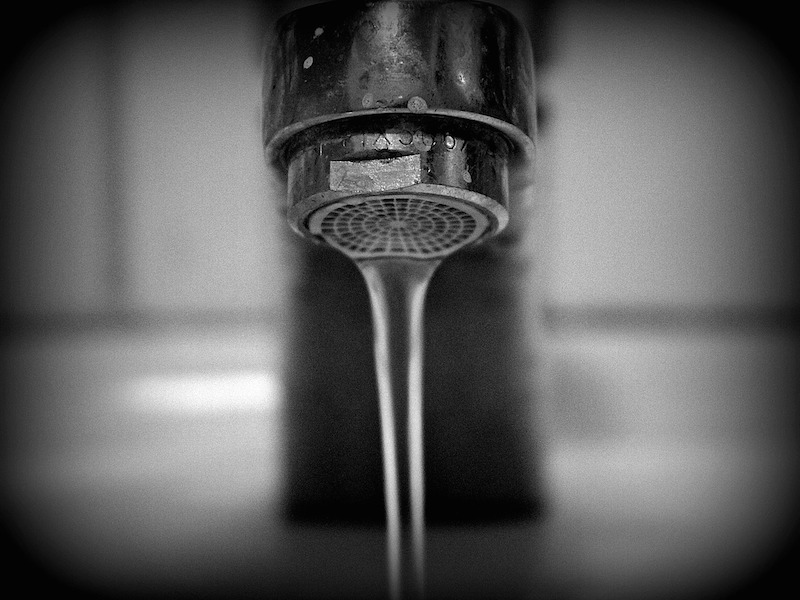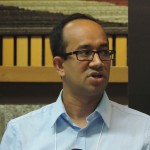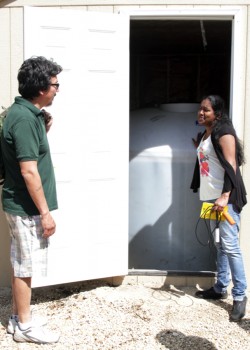
New research supports urgent need for Aboriginal drinking water progress
Safe drinking water may be almost as significant as graduating from high school or having a job when it comes to predicting the health of Canadian Aboriginal people living off reserve, according to new research presented at a national water conference.
University of Manitoba PhD student Khan Jahirul Islam and University of Winnipeg economist Melanie O’Gorman are the first to use Canada’s Aboriginal Peoples Survey to explore the relationship between drinking water and health. Poor drinking water on reserves has attracted national attention in recent years but the survey by Statistics Canada focuses on Aboriginal people who do not live on reserves.
Islam told about 40 people at the Canadian Water Resources Association conference in downtown Winnipeg that survey respondents who said they had safe drinking water were 8 per cent more likely to be in good health than those with unsafe water. In particular, they were less likely to report being diagnosed with stomach conditions or being unemployed because of a health problem.
A separate Regional Health Survey of people living on reserve found that those with water piped to their homes were much more likely to report good health than those whose water was delivered by truck and stored in cisterns.
“Increased investment in water infrastructure is … crucial for the betterment of health status both for off- and on-reserve houses,” Islam concluded.
Another U of M PhD student, Geethani Eragoda, told conference participants she found bacteria in drinking water in many First Nation homes that use cisterns, especially concrete underground tanks prone to cracking.
The students are supported by grants awarded to U of M law professor Karen Busby and soil scientist Annemieke Farenhorst.
Busby’s research suggests the human right to water is now part of customary international law, meaning Canadian courts could enforce it. Canada’s Constitution also commits governments to “providing essential public services of reasonable quality to all Canadians.”
Psychology professors Katherine Starzyk and Jacquie Vorauer (both U of M) and Danielle Gaucher (U of Winnipeg) may use O’Gorman’s health data and Busby’s legal analysis in ongoing research on what kinds of advocacy strategies are effective.
So far, it appears that framing drinking water as a human right and illustrating the suffering caused by poor water access increase public support for government intervention. Nora Whiteway of Wasagamack calculated she spends about 10 to 15 hours a week hauling water pails because her home has no running water. “When my kids were small, I had to carry one child on my back and hold the hand of the other child and carry my bucket with the other hand.” Now middle aged, Whiteway has damaged her knee carrying pails.
Psychology graduate student Matthew Quesnel found that some arguments for increasing government funding of water infrastructure backfired when study participants were focused on multiculturalism. Some Canadians may find it threatening to think that their country might not be living up to its ideals.
U of M sociologist Laura Funk has suggestions about how to overcome barriers to change after interviewing non-Indigenous Winnipeggers about their attitudes to First Nation water safety.
“It’s very important that all this research is being done,” Darlene Courchene of Sagkeeng First Nation said at the end of the conference session. “We all survive from water, and if we don’t protect it now, I don’t see a future for any of us – whatever nationality you are.”
Read more online about the University of Manitoba’s water rights projects.
Research at the University of Manitoba is partially supported by funding from the Government of Canada Research Support Fund.








